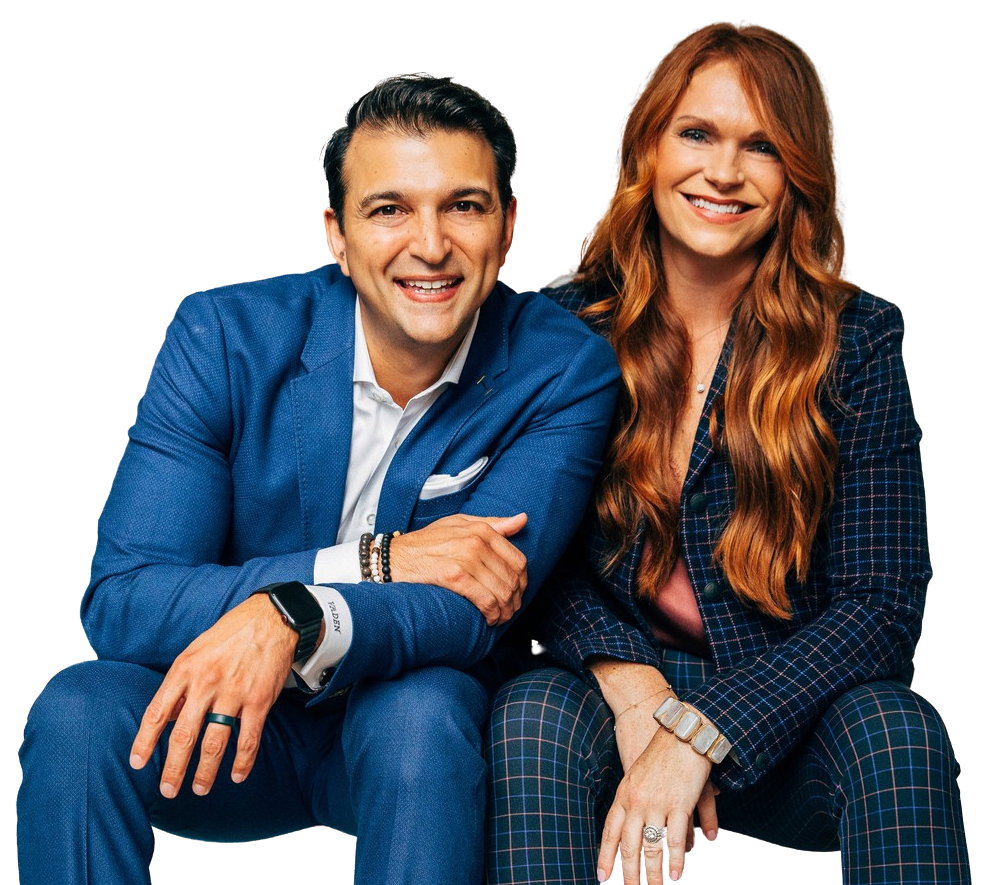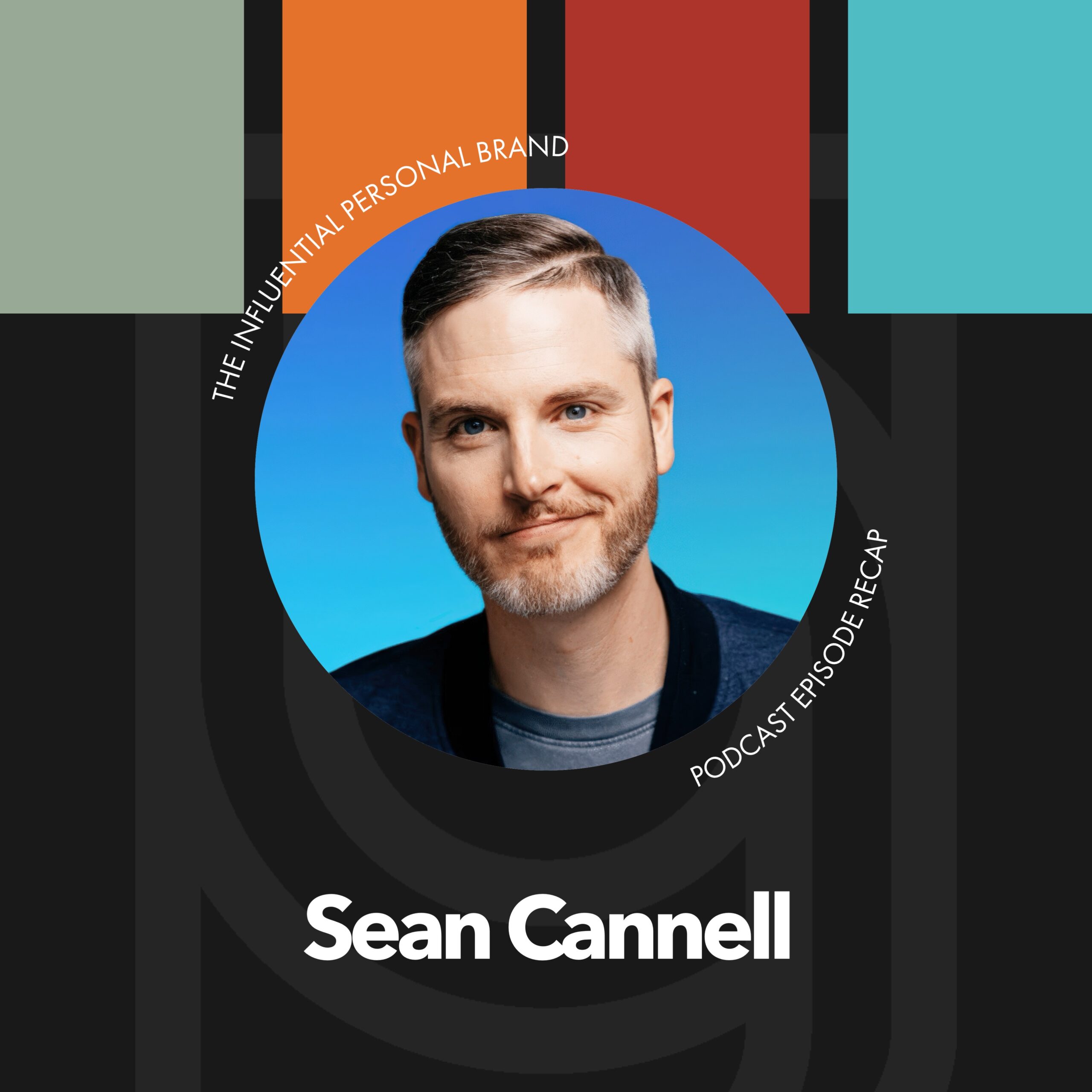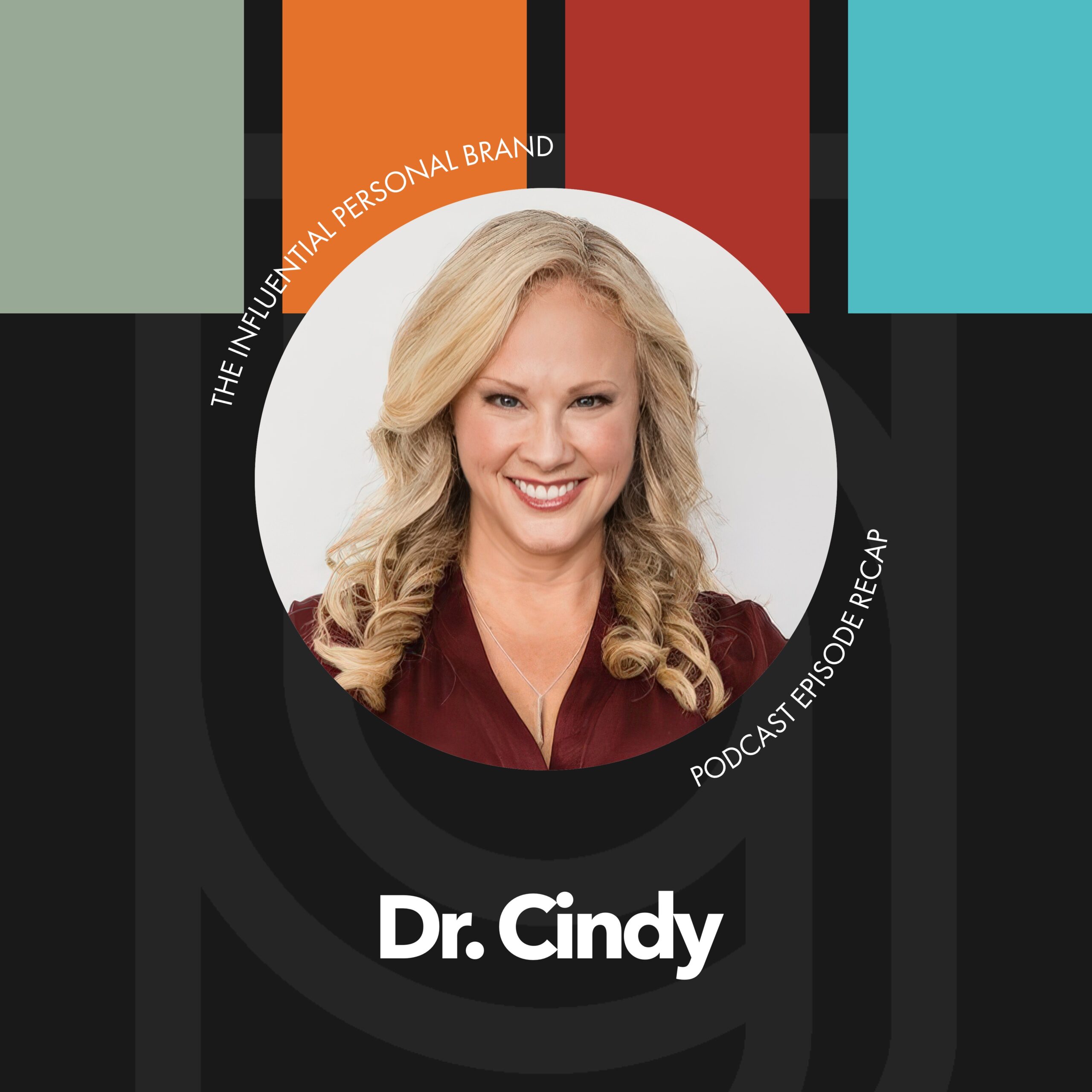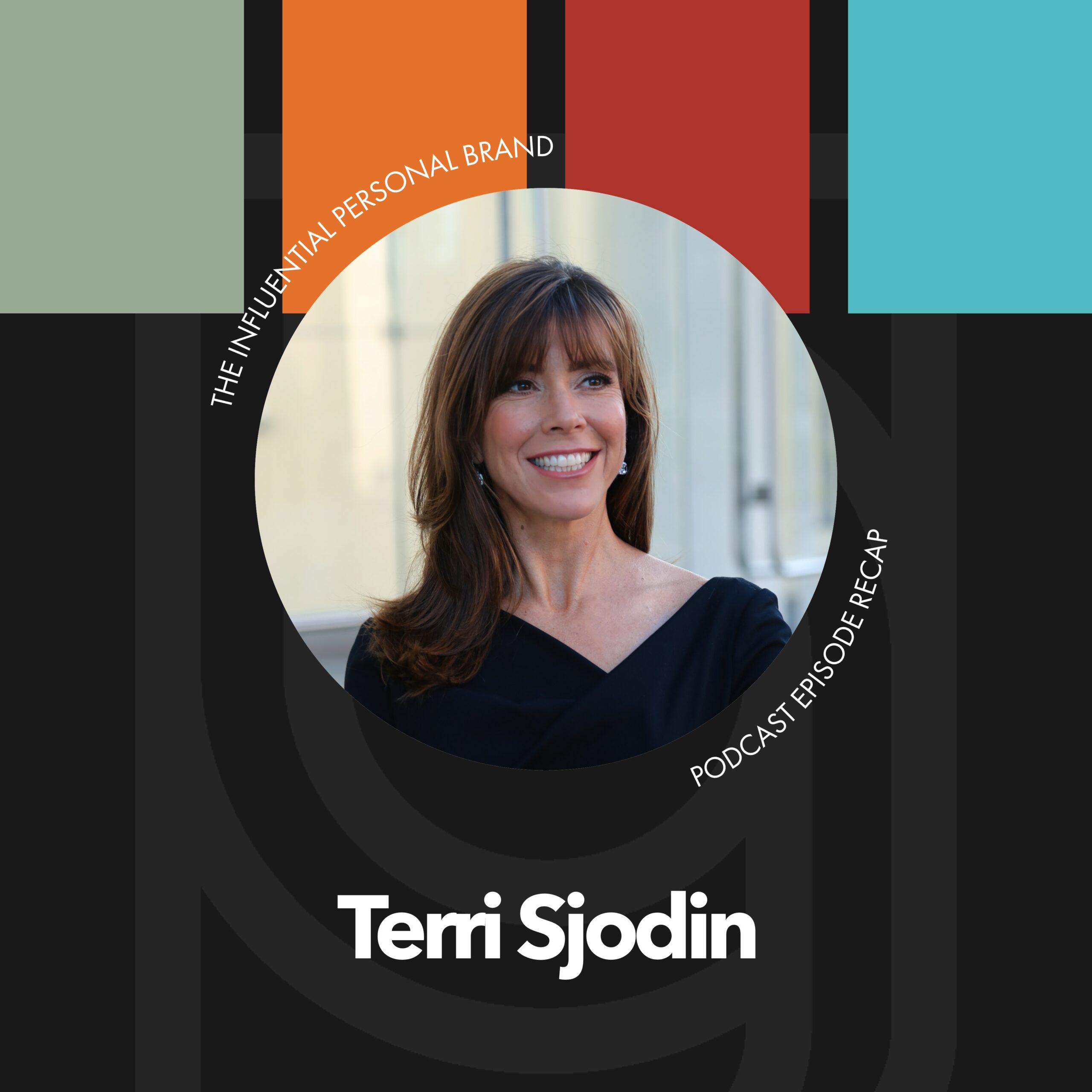RV: (00:00)
Hey, welcome to this recap edition of the influential personal brand podcast. Today we are breaking down the interview with our good friend Julie Solomon. This is the three and three AJ and Rory bringing you our three highlights and Babe, I’m going to let you lead us. Your leadoff batter today.
AJ: (00:16)
Yeah, well I think the first thing is what an amazing gift it is to be able to see a friend as well as a client actually live in their gift and Julie’s interview is such, her living into her gift, she is just a wealth of knowledge when it comes to getting brand deals and just being proactive and knowing what to do. And I’m telling you what, if you haven’t listened to this interview and part of your income plan, your revenue plan is getting brand deals, listen to it. I get that as anywhere in the possibility of that something I’d like to be generating revenue from. Not just getting free stuff but making money. You have to listen to it. But I think all of that is to say one of the things that was really surprising to me in this interview and I didn’t expect for her to really talk about was the importance of confidence and how for a long time she didn’t have it because no one, Julie today, you wouldn’t think that she ever struggled, struggled with confidence.
AJ: (01:18)
And I love the context of what she talked about this. And I think this is really relevant for anyone who is out there trying to build a personal brand. Because at some point I know that you have asked yourself, should I really do this? Can I really do this? What are people gonna think? Or what if I tell people, and this just doesn’t go anywhere, or am I going to look too self-promotional? Or what if, what if? What if and I know that for many of you listening, that is the exact thing that is holding you back. It’s not your ability or capability. It’s nothing to do with that is your own mice mindset of can I, should I, what will people think if I do? And she really breaks that down and talked about how, you know, she was watching everyone else and there was this little voice inside that kept getting bigger and louder and bigger and louder.
AJ: (02:11)
And for years she ignored it and pushed it down. And then she talked about the, how she had a, a group of people who really loved where she was doing what she was doing for them and maybe didn’t want to see her explode out of that position and break out into her own. And I think confidence is so much of our own, our own mindset and our own belief, but then it’s also compounded by the people that we surround ourselves with. And so she spent like 10 minutes talking about this concept of confidence in a really unique way. And I just think that’s a, it’s a really unique thing to talk about when it comes to building your personal brand because you’re going to have to have, not a little confidence but a lot of confidence because there’s gonna be some naysayers and there’s gonna be some people who don’t want to see you succeed and who don’t agree with your message and you better have some confidence to back it all up.
RV: (03:03)
Yeah. Well, I, I thought that was powerful also. And like you said, it’s interesting to see our friend do that, who we know is this like, you know, amazing, confident person you know, proactively or practically one of my favorite tips was just if you’re pitching yourself for TV, do it on video and what a simple tip. But she, you know, really helped with that mindset of, of, of putting you in the frame of mind that a Booker or you know, like a producer is in and how they’re trying to think about shows and things that they’re putting together. And I also thought, you know, so, so that concept of just show people what you’re able to do. This was specifically for TV getting booked on television shows. That made a lot of sense. Like why wouldn’t you pitch in the format or the medium that you’re pitching for?
RV: (03:54)
I think you could also play that too if you were trying to pitch yourself for a podcast for like a major podcast production or a radio show, you should pitch in the medium that you’re, you know, you’re going for. So I thought that was super relevant. Relatedly. And this is something that we’ve found to be true for us as well, that it makes sense to start local before going national. You know, get those local television appearances cause they really need the content, particularly at the local level there. They’re trying to fill their calendar with meaningful stuff and you also don’t have to travel, which is really nice and you can do a lot of local gigs and almost become like a regular in your, on your local TV market and, and really build up the kind of real that you would need before you then go out and pitch to national.
AJ: (04:42)
Yeah. I think part of that is related to confidence in what Julie talked about is these people who are booking you, they need to have confidence that you are going to be good in this visual medium that you’re going to be showcased in, in this case that you’re referring to is TV. But it’s like they need to see that you’re not going to be stumbling, bumbling around and that you’re comfortable in front of TV. And she said even doing podcasts like this where it’s a visual medium and you’re having a conversation and you know, even if it is just like this or in the context of Rory interviewing Julie, she that that works. But people need to know and they need to have a confidence before they book you. And put you on there that they know what they’re going to expect.
RV: (05:21)
And I think so the second tip for me and for you was the same was around micro-influencers and I thought this, this was a healthy mindset shift.
AJ: (05:29)
Yeah. So I think that there was two big things that for me that were kind of like, huh, Oh yes. I’m talking about, and this is not the second or third time throughout the summit that I’ve heard people talk about the value of the micro influencer. And she talked about how there’s a huge misconception out there that you have to have hundreds of thousands of followers to get brand deals. And she goes, that’s just not,
RV: (05:51)
I mean I thought that I thought that
AJ: (05:53)
I was getting more money for brand deals and I had what, seven, 8,000 followers then my friends who had hundreds of thousands of followers and who were only getting free gifts versus actual paid money. And it all came down into positioning and messaging and audience awareness and how to pitch yourself and how to book yourself at this concept that there is a huge value in engagement more than followers. And she said for the micro influencer engagement has to be high. She goes, doesn’t it? It doesn’t matter about your follower counts. Sometimes it’s just how loyal and how engaged all the four are the followers that you have.
RV: (06:33)
Yeah. You know, I was thinking about this the other day that you know, you know, social media is so, it’s so like public or it’s like superficial. It’s what you see. The parallel for me is in golf they say you drive, you drive for show, but you putt for dough. Well your social media count is like a drive. It’s all for show. But I was thinking about somebody who has a 300,000 let’s say it says 300,000 followers. If they get a 1% you know like engagement rate, let’s say on 300,000 you’re talking about was the 10% would be 30,000 is that right? 10% would be 30,000 so 1% would be 3000 so would you rather be someone who had 5,000 people on your email list or 300,000 followers. And I think most people would say, Oh, I want $300,000 and I probably would too.
RV: (07:27)
Cause I think I could turn that into more email lists. But the reality of the actual reach there is about the same that maybe 10,000 people on email is, is worth having several hundred thousand followers on social because of the algorithms and what small percentage. And you know, what she was saying is your engagement rate when you’re a micro influencer is it’s easier to keep it high because you don’t have to have so many people engage with something as you have more and more followers. It’s like the content has to be so good that not just a small subset, but like a huge chunk of the audience has to really like it and engage. And so that’s just, again, to the perception of all of this is understanding, you know, I think the perception is really, really important. There’s value to perception, but also being able to appropriately to, to value the, the, like the monetary aspects of that and what’s that worth. And brands are intelligent, right? Like they know that and they know that somebody that, that gets, you know, a 10% engagement rate on a few thousand people is worth a lot and they know exactly who they’re seeing and they know exactly what type of people are seeing those. And you know, a lot of times too, you don’t have to pay as much for a micro-influencer as you do for a macro, you know, or a major influencer. So,
AJ: (08:48)
Or, it depends on how you pitch yourself according to Julie.
RV: (08:51)
Yeah. Well, I mean positioning, but positioning is always a part of it, but I think you, you have to go out and do the work and that, that’s probably to me, the third thing here is just her mindset.
AJ: (09:07)
Don’t sit back and wait. Yeah. She talked a lot about how all these people get all these followers and then they go, where’s my brand deal?
RV: (09:16)
Yeah. Where’s my money?
AJ: (09:17)
There’s like, I’ve done all this work. My job is to put out the content. My job has to get the followers. Why am I not getting this attention? Why am I getting these deals? Why am I not getting this? And the short answer is well, cause you’re not actually going out and asking for it. You’re actually, you’re not actually doing the work to go out and attract it and actually put your, literally put your content in front of them in a very direct way. And she talked about how on Facebook and Instagram, like DMS matter, she goes, DM these brands like actually get the conversation started there and then she talked about how on Twitter it’s more for media. She goes, if you’re really trying to get into media then be researching those media outlets on Twitter. But if you’re really trying to get in touch with brands, Facebook and Instagram as the way to go. And DMS is a really simple, easy way to start. No excuses, which I know is your big last thing is this concept around no excuses, but it’s not waiting around for people to come to you. It’s not this concept of build it. And they will come, no, build it. And then go invite them to come, go knock on the door and say, come tell them what you have inside, not build it. And they will come. That is not a real,
RV: (10:29)
It’s not a real business model. Yeah, you gotta be proactive. And that’s, I think that’s another misconception again, that I had, I just kind of think, Oh well, I’m sure all these people with millions of followers, like people just come to them and to have Julie go, no, you are proactive. You’re, you’re promoting your marketing, you’re your engaging, you’re networking, you’re reaching out to people and go, yeah, that’s the real, that’s the real work of getting a brand deal. And most people aren’t willing to do that work. And it’s like, it’s a classic example again of the real truth from behind the scenes being exposed from somebody who’s, who’s out there doing that. And I just, I love that about her. And I love her special snowflake syndrome. I just think that’s the coolest, I just think it is because, because we all think we’re special snowflakes, right?
RV: (11:19)
Like we all listened to it go, yeah, that doesn’t apply to me. Or yeah, I don’t need that, or I’m, I’m too smart for that, or I, I don’t need that really do that. It’s such a niche. Tiny audience on my end won’t work for my industry. Or the other thing is is is we kind of go, Oh well you don’t understand how hard I have it. You don’t understand like what I’m overcoming. You don’t understand that I have to deal with compliance or you don’t understand like in health care you can’t, you know, no one will just do this cause it’s healthcare. Or like there’s all this stupid stuff that we tell ourselves and it’s not that there aren’t certain kind of things that need to be navigated around, right? Like compliance for financial and the financial industry is a real thing. But it’s not the excuse to not do it at all.
RV: (12:07)
And what we do is we jump to, we take things that are our challenges and we turn them into excuses and we just go, Oh, because this is a challenge. Someone laid this down. I’m going to use that as my excuse to get out of it. And ultimately to be successful in anything like getting brand deals or building a personal brand or doing any, anything significant, you have to just move past the special snowflake syndrome and go, yeah, there’s nothing special about me. And there’s nothing special about the people who’ve been successful other than they didn’t buy into special snowflake syndrome and they worked, they did the research, they believed in themselves, they built a confidence, they made a presentation and they made it. They made it happen. And you know that, that that’s the secret. Like that’s the key. Like brand builders can teach you all the formulas and the frameworks and the structure and the order and the sequence and the logic. And you know, we have all these things get that can really help shortcut a path, but you still have to walk the path. And,
AJ: (13:08)
And I think just to like make it really clear, a special snowflake syndrome is actually give the definition that Julie gave.
RV: (13:16)
Giving yourself an excuse as to why your circumstances won’t allow you to achieve something you really want.
AJ: (13:22)
And I think we all battle that in some area of our life. It doesn’t matter if it’s building your personal brand or your finances or your fitness or your marriage, or friendships or family relationships, whatever. We all battle that in some arena. And what she is saying, well, that’s the thing that’s holding you back. And I love what you just said too. It’s don’t let the challenges you have become the excuses you make. Just because it’s a challenge doesn’t mean there’s not a way. Just don’t want to become an excuse.
RV: (13:53)
So listen to that. Julie was preaching it and she was doing fantastic job. So go listen to the words from her mouth. And thank you for staying. Stay in a part of what we’re doing. We’ll get to next time.














